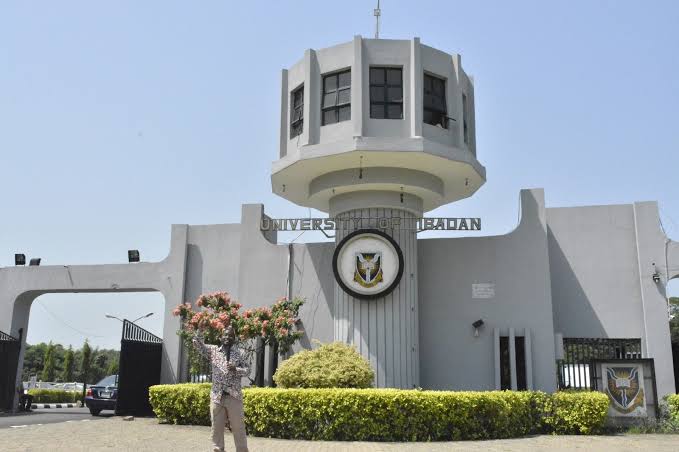Clinical Students of the University of Ibadan College of Medicine, on Monday, laid sieged for the visit of Minister of Power, Chief Adebayo Adelabu, to the University College Hospital (UCH), to protest power outage at the hospital.
The students expressed their grievances, saying they were tired of the over 100-day power outage at UCH.
The Minister of Power, Bayo Adelabu, and the IBEDC management were at UCH over the lingering power outage during the protest.
The students displayed placards with inscriptions such as “We are tired of 100 days of darkness; Save UCH” among others.
They insisted that the minister must find solution to the outage, which, they said, had disrupted their academic and clinical activities.
The Student Union President, Bolaji Aweda, said that the students demanded immediate restoration of power to UCH.
According to him, the 50 per cent waiver the government promised to tertiary healthcare institutions should be implemented.
The students also requested for an urgent reformation of the health sector among others.
In his response, the minister assured that the government and the UCH management team would look into the real issues and causes of the power outage.
Adelabu promised to proffer a permanent solution to the situation and that the institution would soon be reconnected by IBEDC.
Recall IBEDC disconnected UCH from the national grid on Oct. 27 due to accumulated debts.
IBEDC to restore electricity to UCH soon – Adelabu
Meanwhile, the Minister of Power has disclosed that IBEDC will reconnect the University College Hospital (UCH), Ibadan, as soon as agreed conditions are met.
The minister disclosed after Monday’s tripartite meeting involving himself with the management of UCH and IBEDC at the hospital complex.
Adelabu said the reconnection would occur after the College of Medicine and other commercial entities (banks and businesses) were disconnected from the hospital’s power supply.
He said the energy consumption of other entities contributed to the hospital’s high consumption and cost of energy.
“There is a gross mismatch of energy cost to UCH and how much they charge the business entities. The business entities within the hospital should also pay as they consume energy.
“Whoever is ready to enjoy direct energy support with UCH should commit in writing that they will be paying before IBEDC can put them on for reconnection,” he said.
Following the energy separation plan, Adelabu said UCH’s electricity bill would be reduced to one-third of its current cost.
He said the hospital had committed to paying its outstanding debt over the next nine months and settling any new electricity bill.
Adelabu said UCH would be considered for Phase 2 of the Rural Electrification Agency (REA) Projects, scheduled for the second and third quarter of 2025.
“The long-term goal is for Federal Government institutions to transition off the national grid.
“REA projects have already been successfully completed for the University of Abuja (2MW) and University of Maiduguri (12MW) among others,” he said.
IBEDC Managing Director, Mr Francis Agoha, said the company and the hospital’s management had agreed on ways to ensure energy was well managed at the hospital.
Agoha assured that UCH would be reconnected as soon as the agreed conditions were met.
“We will reconnect as committed but some actions must be taken; some entities consuming light with the hospital will have to be disconnected before we reconnect.
“So, the management will have to let us know those willing to be paying and be connected with them.
“We will set up a team to look into the bills being given to the hospital so that it won’t be escalating,” Agoha said.
Earlier, UCH Chief Medical Director, Prof. Jesse Otegbayo, said the management had been working round the clock to provide alternative and sustainable electricity power.
“Indeed, we have since embarked on a phased approach, including the provision of alternative energy (solar inverters and diesel-powered generators) in critical units such as the wards, accident, and emergency unit, labour wards, and theatres among others,” Otegbayo said.
